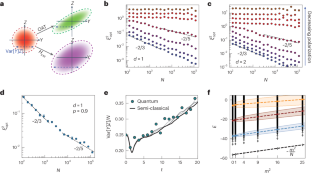Phys.org August 26, 2024
Spin squeezing is a form of entanglement that reshapes the quantum projection noise to improve measurement precision. An international team of researchers (USA – Harvard University, UC Berkeley, Germany) provided numerical and analytic evidence for the following conjecture: any Hamiltonian exhibiting finite-temperature easy-plane ferromagnetism could be used to generate scalable spin squeezing, thereby enabling quantum-enhanced sensing. It is based on a connection between the quantum Fisher information of pure states and the spontaneous breaking of a continuous symmetry. They demonstrated that spin squeezing exhibits a phase diagram with a sharp transition between scalable squeezing and non-squeezing and the transition coincides with the equilibrium phase boundary at a finite temperature. They predicted that in the scalable squeezing phase, a sensitivity scaling that lies between the standard quantum limit and the scaling achieved in all-to-all coupled one-axis twisting models. A corollary of their conjecture was that short-ranged versions of two-axis twisting could not yield scalable metrological gain. According to the researchers their results provided insights into the landscape of Hamiltonians that could be used to generate metrologically useful quantum states… read more. TECHNICAL ARTICLE

Impact of finite temperature on squeezing. Credit: Nature Physics, 29 July 2024